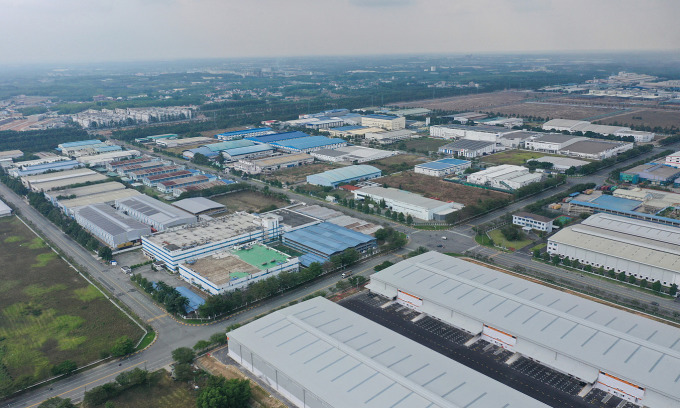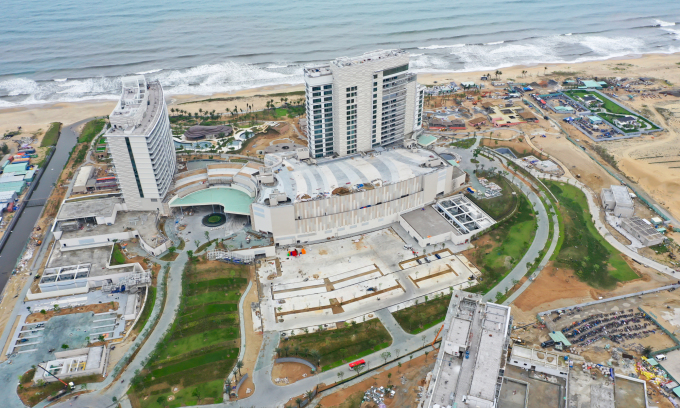Vietnam has emerged as a premium market choice for foreign investors looking to venture into Asia. The country is located on the South China Sea, and is mostly known for its breath-taking sceneries, great food culture and numerous business opportunities. Its economy has grown at a fast pace over the last years, mainly thanks to its proximity to China and the favourable business environment. This has seen multinationals like Samsung or Google invest massively in the economy. We summarise below some of the major points on why investors should consider to invest in Vietnam.
1. One of the fastest growing economy in the world
According to statistics from the World Bank, the Vietnamese economy has been one of the fastest-growing economies in the world over the last years. This rapid development started due to economic reforms launched in 1986 and the rise has been continuous ever since. According to the World Bank, the Gross Domestic Product (GDP) rate in Vietnam has experienced a stable growth, averaging 6.46% per year since 2000. This has seen Vietnam become the third biggest economy in Southeast Asia. The country is also expecting to continue its structural shift from farming to the industrial sector, thus creating more business opportunities for local and foreign investors.
2. Strategic location in Asia
The country's strategic central location in Asia gives it a structural competitive advantage compared to its Southeast Asian neighbours. Its proximity to most markets in Asia, China in particular, makes it an ideal location for foreign investors. Thanks to its extensive coastline of 3,444 km, The country is close to major shipping routes, thus providing better conditions for trading. The two major cities of the country are Hanoi, the capital located in the North and Ho Chi Minh City, the economic centre and largest city, located in the South.
3. Favourable government policies
Vietnam has always been welcoming to Foreign Direct Investment (FDI) and encourages it by constantly renewing regulations and providing tax incentives to attract more investors who invest in certain geographical areas or sectors of special interest, e.g. high-tech or healthcare sectors at the moment. Vietnam recorded over US$26 billion FDI in 2019. Giants like Samsung, Nestle and LG are among the largest contributors. Since 2015, the government relaxed property ownership rules for foreign investors, who can now enjoy 100% ownership, for a renewable 50-year period.
4. Opening to the world thanks to new Trade Agreements
Another indication of Vietnam’s openness to the global economy are the numerous trade agreements signed to make the market more liberal. Some of the memberships and agreements include: the ASEAN Free Trade Area (AFTA), the World Trade Organisation (WTO), the bilateral Trade Agreement (BTA) with the US and the Free Trade Agreement with the European Union. All these treaties show that Vietnam is eager to promote the country's economic growth and will continue its commitment towards trading with other countries.
5. A very large and dynamic population
Vietnam is currently the 14th largest country in the world with 96,5 million people in 2020, more than any European country. The population is expected to grow to 105 million by 2030. With such a large population and a thriving economy, higher incomes and more investment opportunities are expected. The middle class of Vietnam is increasing faster than any other Southeast Asian nations. Experts estimate the middle class to grow to 95 million by 2030, which will support consumerism and make the country a profitable target for foreign investors.
6. Young demographics
Compared to China where people are aging rapidly, the population of Vietnam is young, with a median age of 30,8 years in contrast to 37,3 years in China according to studies. Experts also estimated that 60% of Vietnamese are under the age of 35. In addition, the country also invests more money in education than other developing countries, bringing a large skilled labour force. Although most of Vietnamese are still conservative when it comes to spending, they are shifting from shopping to satisfying basic needs to also boasting their styles and new-found social status. Demand for modern retailing services is surging, making the retail sector an attractive investment field in Vietnam.
7. Tourism industry boom
With its well-preserved cultural diversity and natural habitats, Vietnam has become a popular tourist destination. Each year, millions visit the country to experience the picturesque coastlines, wild forests, mountains and excellent food, which has a direct impact on the country. Although the tourism industry in Vietnam is still developing, it already plays a key economic role as it attracts foreign investment, creates jobs and provides investment opportunities for small business owners. Shifting the Vietnamese workforce from agriculture to the services industry created by tourism growth presents the potential for higher disposable incomes and reduced poverty. Tourism in Vietnam benefits all sectors of the economy.
8. Major Investment in Infrastructure development
The country has experienced an infrastructure boom in recent years being the second country in Asia to invest a large portion of its GDP into infrastructure development. With the government investing in new ports, such as Hai Phong in the North, highways, and hospitals, while also upgrading the existing ones. This has resulted in more effortless movement within the country. The government has contracted international companies to assist in improving and building new infrastructure, such as the railway line that connects Hanoi and Ho Chi Minh City, and the plan to invest US$921 million to improve the industrial parks.
9. Ease to do business with relatively low costs
Vietnam has made numerous amendments to their regulations to make investing in the country more transparent. According to a recent study, Vietnam ranked 82 out of 190 countries in terms of ease of doing business. Compared to the previous year, the ranking improved by 9 positions in particular thanks to improvements made on administrative processes. Based on their economic models, Trading Economics predicts Vietnam to rank 60 by end 2020. Hence, the future prospects of ease of doing business in Vietnam are very promising. In contrast to many other countries, it is possible to start a business in Vietnam without having a minimum amount of capital required.
10. Why Vietnam can be seen as the next China
According to the World Bank, the economic growth of Vietnam has raised the country from one of the world's poorest into a lower middle-income country over the past three decades. If the economic rise of nearly 7% GDP per year continues, Vietnam's development could be compared to what Chinese economy experienced a decade ago. China is falling in popularity among global companies that increasingly prefer building factories in Southeast Asia. This is mainly due to rising costs, more regulations, weaker growth, the US-China trade war and a strong national-bias in the Chinese market. East Asia is experiencing a downturn, while Southeast Asia is on the rise. Vietnam is one of Asia's more promising markets as it opens to foreign investment - and buying property is arguably the best way to gain from Vietnam's economic rise as a whole.
Vietnam is a market which is largely overlooked, probably because many investors have preconceived ideas based on the country's history. It had to endure a long recovery from the war back in the 20th century, but this has helped to lay the strong foundation for the rapid economic growth that we are now witnessing. Despite the fact that the country is still under communist rules, it has been open-minded about the importance of foreign investment in its development, bringing arguments for investors to find out if Vietnam can deliver the kind of returns that developed economies are struggling to achieve.
 Industrial land rents soar as foreign investors flock
Industrial land rents soar as foreign investors flock
 Foreign investors to buy out more Vietnamese property
Foreign investors to buy out more Vietnamese property
 Warehouse demand soars, but supply modest
Warehouse demand soars, but supply modest
 Australian woman co-founds fund for Vietnamese SMEs
Australian woman co-founds fund for Vietnamese SMEs
 Saudi Arabian firm seeks to set up refinery in Vietnam
Saudi Arabian firm seeks to set up refinery in Vietnam
 Amazon, Alibaba demand more Vietnam-made home décor
Amazon, Alibaba demand more Vietnam-made home décor
 Industrial land rents soar as foreign investors flock to Vietnam
Industrial land rents soar as foreign investors flock to Vietnam
 Foreign investors to buy out more Vietnamese property projects:
Foreign investors to buy out more Vietnamese property projects:
 Warehouse demand soars, but supply modest
Warehouse demand soars, but supply modest
 Australian woman co-founds fund for Vietnamese SMEs
Australian woman co-founds fund for Vietnamese SMEs
 Saudi Arabian firm seeks to set up refinery in Vietnam
Saudi Arabian firm seeks to set up refinery in Vietnam
 Amazon, Alibaba demand more Vietnam-made home décor
Amazon, Alibaba demand more Vietnam-made home décor